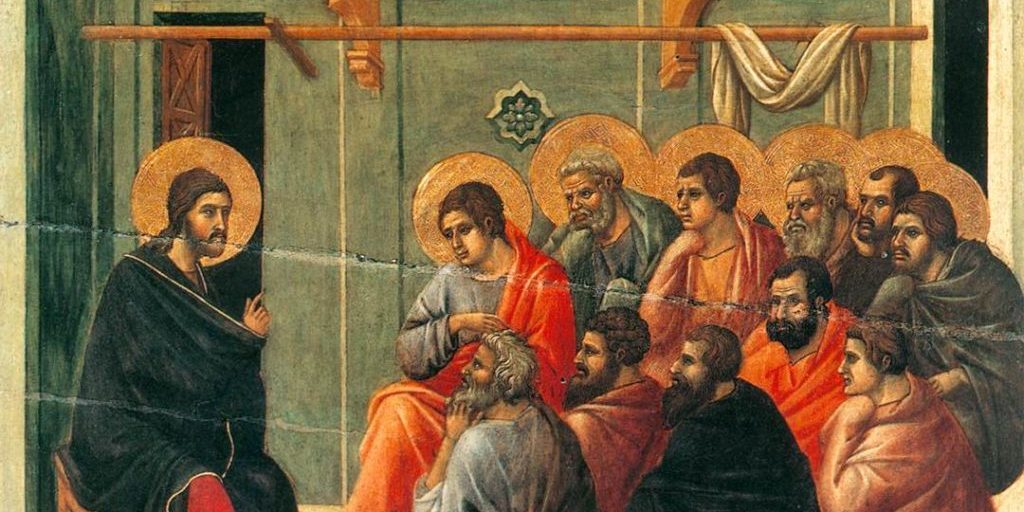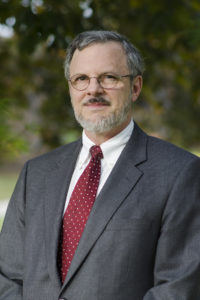
Doctrine for Discipleship
Spiritual formation is happening all the time. Culture and society are in the full-time business of making disciples, not to life in Christ but to a variety of lifestyles, all informed by culturally conditioned pictures of health, wellness, and fitness. As we have seen, however, it is notoriously difficult to define fitness by itself, which is why the US Armed Forces speak of fit for purpose. In a military context, the purpose was warfare, and though the concept of Total Force Fitness is more holistic, the basic idea behind basic training is that soldiers are being equipped on a variety of levels to be the kind of persons who will be able to carry out their mission efficiently and as safely as possible.
Theology serves the church by helping make disciples fit for purpose, but the purpose is not, strictly speaking, military. Make no mistake: Jesus did think about discipleship in terms of fit for purpose. In Luke 9, a chapter that is all about discipleship, Jesus meets three people who say they want to become followers. Fittingly enough, the conversation takes place as they are walking, the operative concept in discipleship. Jesus gives each of them a brief lesson in discipleship, but it is the third that is most relevant for present purposes: “No one who puts his hand to the plow and looks back is fit for the kingdom of God” (Luke 9:62). To put your hand to the plow is to begin the work of a farmer, but looking back indicates distraction from the work, likely resulting in a crooked furrow.
And there you have it. Disciples of Jesus are fit for purpose when they are able to act as heralds and representatives of the kingdom of God. Humans were originally created in the image of God to be his vice-regents and representatives on earth, charged with cultivating creation. Similarly, disciples are re-created (regenerated) in the image of the one who is the image of God, namely, Jesus Christ. To be fit for the purpose of advancing the kingdom of God, disciples have to be like their king. To be fit for the purpose of representing the kingdom of God means becoming Christlike, which means being able to embody the new creation that is in Christ, who is seated in the heavenly realms, on earth. Disciples are fit for their kingdom purpose not when they can fight for its coming, but rather when they can witness, with every fiber of their being, to its arrival.
Discipleship is a call, a vocation, to follow Jesus everywhere, before everyone, at every time. Every step we take is part of our walk, and the way we walk defines who we are. Theology serves the church by helping make disciples fit for the purpose of walking after Jesus, representing him and his kingdom. There is an individual and corporate dimension to discipleship. Disciples must be fit for purpose: for godliness, for citizenship in the gospel, and for building up the church, the body of Christ. “You yourselves like living stones are being built up as a spiritual house” (1 Pet 2:5). Augustine famously compares this spiritual house to a city of God, a heavenly city marked by love of God rather than the self-love that characterizes citizens of the earthly city. Theology serves the church by helping make disciples fit for the purpose of walking after Jesus, representing him and his kingdom. Click To Tweet
Paul says, “our citizenship is in heaven” (Phil 3:20), and this leads to the main claim of the present section: disciple-making is ultimately a matter of preparing persons to live as citizens of the gospel (Phil 1:27; cf. Eph 2:19). In ancient Greece, “the official purpose of the gymnasium was to create citizens and soldiers fit for the purpose of the polis [city].” Aristotle saw the obligations of citizenship, to work for the common good, to encompass everyday life so that one could not separate private from public life. Today we understand citizens to be members not simply of a polis (city) but of a nation in which one enjoys rights and assumes responsibilities.
Good citizenship involves actively assuming one’s responsibilities for the common good, like keeping the law. In ancient Greece and Rome, citizenship was for an elite, in contrast with modern democracies, where almost anyone can be a citizen. A few years ago, E. D. Hirsch wrote Cultural Literacy: What Every American Needs to Know. The title prompts the question: need to know for what? Hirsch’s answer: “To be culturally literate is to possess the basic information needed to thrive in the modern world.” Cultural literacy is about learning what one needs to know in order to become a competent participant in the American experiment, that is, the social experiment that is American democracy. Hirsch argues that there are certain things Americans need to know—“core knowledge”—in order to function in American society.
I propose that we combine Aristotle’s and Hirsch’s insights and apply them to the task of making disciples. In reading Scripture and formulating doctrine, the pastor-theologian forms competent citizens of the gospel and, in a sense, thereby “civilizes” them (from Latin civilis = “relating to a citizen”). What we’re after is canonical and theological literacy—in a word, catechesis. Theologians are catechists, and a catechism is a training manual that sums up and spells out the biblical story, from creation and fall to cross and consummation. In doing so, the catechism informs disciples of what they need to know—core Christian knowledge—in order to be effective citizens of the gospel. Stated differently: we help disciples learn how to follow Jesus by teaching them Scripture and doctrine. The true disciple learns in order to become fit for purpose: fit for polis; fit for good gospel citizenship; fit to embody the values and proclaim the excellencies of the holy nation to which they belong (1 Pet 2:9).
A disciple is a person who is learning Christ. It’s a more ambitious subject than astronomy, history, physics, and philosophy combined, for Christ is the culmination of God’s plan and the summation of God’s wisdom as the gathering place of all things in heaven and earth (Eph 1:10). To learn Christ, then, we need to know how the Scriptures fit together and focus on him. Discipleship requires biblical interpretation, and biblical interpretation is a form of discipleship (that is, following the way the words are about the Word). To learn Christ is to learn to read the Scriptures as testimony to his person and work. To read rightly involves learning doctrine, the treasury of apostolic tradition, as well (2 Thess 2:15). To read rightly, we must also learn what it means to follow him in our contemporary context. Making disciples through Scripture and doctrine is a matter of following the words that lead to Christ in order to live lives worthy of our citizenship of the gospel of Jesus Christ.
**Content adapted from Hearers and Doers by Kevin J. Vanhoozer; used with permission.

